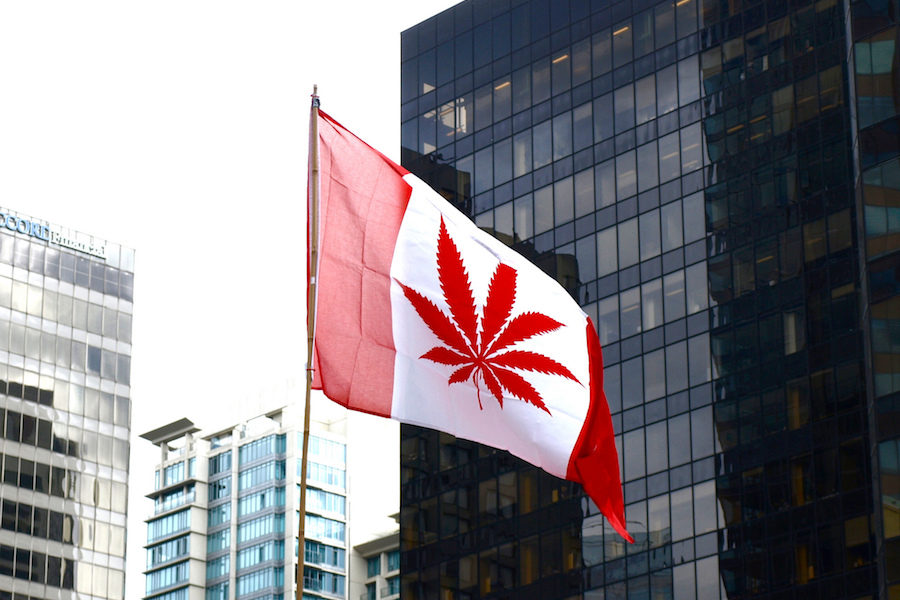The roll-out of legal cannabis is a prime example of how Canada can get things right. Energy shows how the country sometimes gets it wrong.
That’s the view of GMP Capital Inc.’s Harris Fricker, who is seeing deal-making in marijuana and blockchain eclipsing the traditional industries of energy and mining that were once bread-and-butter businesses for the Toronto-based financial services firm.
Canada has become a world leader in cannabis, with initial support from Canadian investors giving way to capital inflows from the U.S., Europe and Asia thanks to a welcoming regulatory environment, according to Fricker. That’s a stark contrast to Canada’s oil-and-gas sector, where major pipeline projects have failed to get off the ground, leading to a record price discount for the nation’s oil sands crude.
“Cannabis is a poster child for how to do it,” GMP’s chief executive officer said Monday in an interview at Bloomberg’s Toronto office. “Oil-and-gas is a poster child of how not to do it.”
GMP is benefiting from interest in blockchain and cannabis, with two-thirds of its investment banking business coming from outside natural resources, Fricker said Friday after releasing third-quarter results. GMP had a 72 percent surge in revenue in the quarter from a year earlier, led by strong investment-banking activity. Fricker said cannabis and blockchain “admirably” filled the void of a beleaguered commodities division.
Staggering Run
The cannabis sector provides the greatest immediate potential, with what Fricker describes as a “staggering” five-year run ahead of it. Canadian investment banks like GMP and Canaccord Genuity Group Inc. are benefiting from a surge in listings in Canada by domestic and U.S. pot companies while cannabis remains illegal at the federal level south of the border.
Opportunities in blockchain — the distributed digital ledger technology that underpins Bitcoin — will start to materialize in five to seven years, he said. Fricker predicted a year ago that as many as 50 blockchain-related companies would go public in Canada. The plunge in bitcoin prices this year has cooled that market for now, he said.
Major pipeline projects in Canada have failed to get off the ground, leading to a record price discount for the nation’s oil sands crude.
“Blockchain has more potential because you’re talking about changing the way value is transmitted,” Fricker said, calling that shift from a 200-year-old traditional accounting system the “Holy Grail.” “As it takes root, its ability to profoundly change society is greater.”
GMP, which is hosting a blockchain technology conference in Toronto Tuesday, is better positioned to provide investment-banking services to these emerging industries than the bank-owned investment banks and U.S. firms because his company is more agile and nimble, Fricker said.
No Salad
“If they’re a cruise ship, we’re a Viking ship,” Fricker said. “I tell my guys never, never get the two confused because there’s no salad bar on a Viking ship.”
As a part of the strategic shift, GMP now has 15 bankers working in the cannabis space, and another 10 on blockchain. Staffing in the energy sector, traditionally the bank’s focus along with mining, has been cut in half, he said.
Still, Fricker said Canada shouldn’t turn its back on resources, and efforts to move away entirely from oil-and-gas are misguided.
“We have been blessed with one of the great caches of resource wealth in the world and harvesting that responsibly — including the gold standard and environmental — should absolutely be the rule that governs,” Fricker said. “But harvest it we must.”
Advance Energy
Fricker expressed frustration at Canada’s inability to advance energy infrastructure, including pipelines to deliver oil and gas out of land-locked Alberta. The impasse has led to record discounts of more than $50 a barrel for some Canadian crude relative to global benchmarks. The federal government was forced to take over the Trans Mountain pipeline expansion in May after Kinder Morgan Inc. halted work amid rising opposition from environmental groups and the British Columbia government.
“We are at an historic high in the differential and we can’t pipe oil product — which is our single largest revenue source in this country — to either coast.”
Canada’s energy woes haven’t helped GMP’s stock, as many investors link the company to that sector. GMP has dropped 40 percent this year, more than six times the decline in Canada’s benchmark stock index, cutting its market value to about C$150 million ($113 million).
Beyond investment banking, Fricker said he wants to expand the Richardson GMP wealth-management division by attracting more advisers to its platform. He has a five-year goal of lifting assets under management to C$50 billion from its current level of C$30 billion.
“Given the changes the banks are making in their wealth-management businesses, we’re optimally positioned to attract large book investment advisers who want to be in the advice delivery game,” he said. “That’s where we’re seeing our growth come from.”






Comments